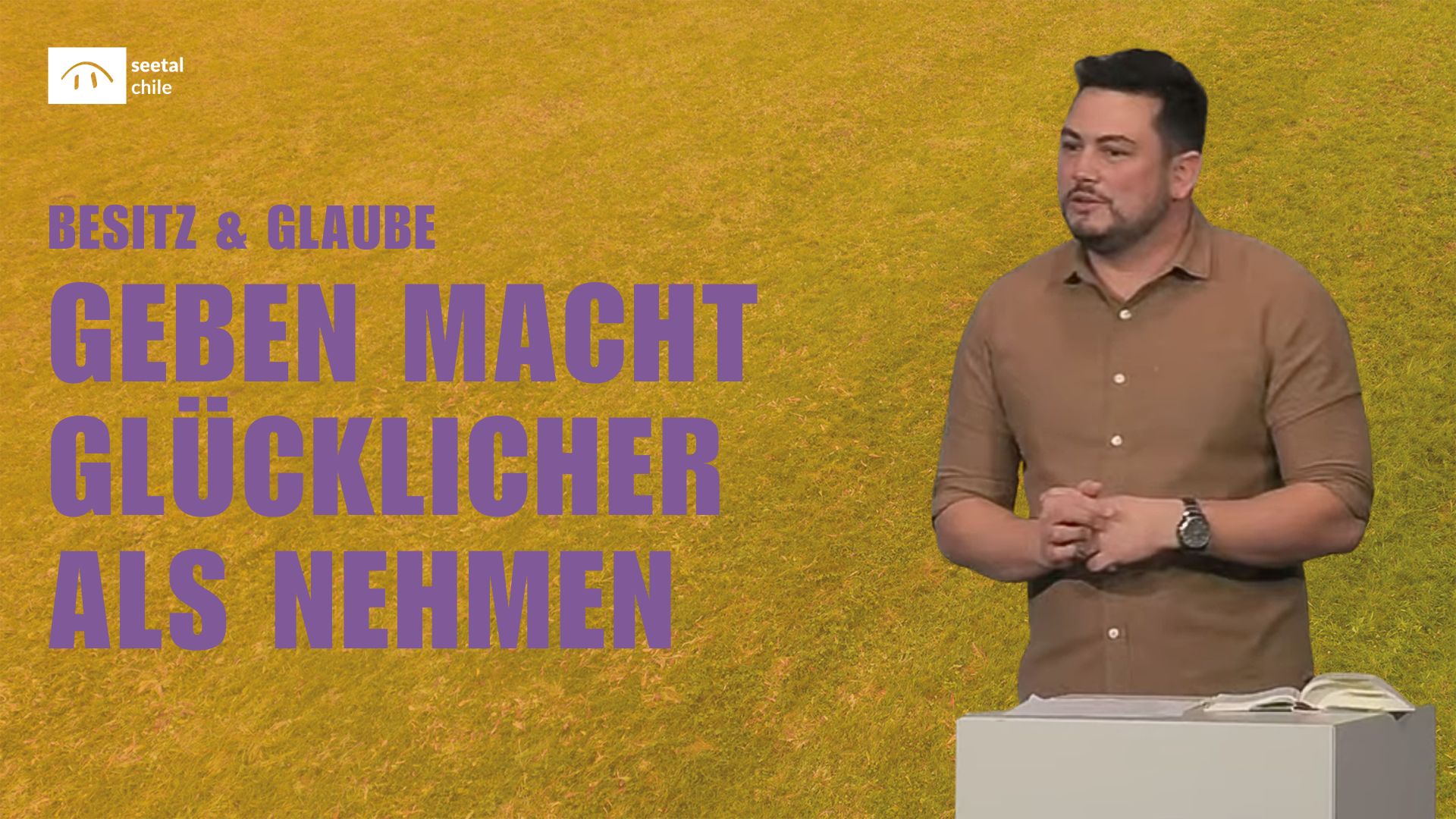God seeks the man on the lonely road
Series: EIFACH muetig – with Jesus as a role model | Bible text: Acts 8, 26–39
A rich, poor man is on his way back on a lonely road. He has travelled 3850 km trying to find God and has failed. God then sets out to find him, redeem him and give him a new perspective on life. At the end of the story, the man has come to know and accept Jesus, has become happy and travels his road full of joy. Wouldn’t we like that too?
Initial situation
There is an influential man, the finance minister of Ethiopia. He has travelled 3850 kilometres to worship in Jerusalem. He seeks God in the religious centre of the time, the temple – but does not find him. He is a foreigner. He was only allowed into the forecourt of the women and pagans. And – even worse – he was a eunuch – a castrated man. According to Deuteronomy 23.2, he was always excluded from the assembly of the Lord. In the understanding of antiquity, a man lived on «eternally» in his children. For this man, there was no continuation of his life. When he died, everything was finished: rich and yet poor. There is something else that makes the story of the eunuch sad. He reads the word of God, but does not understand it. His assessment: How can I understand the word if no one explains it to me?
The finance minister of Ethiopia is a picture of the unsaved people of today. Many are rich, but have no hope of eternity beyond this world. They seek God, but cannot find him because they fail because of the religions of this world. Everyone talks about spirituality – but who can really explain God and his purpose, where is the good news?
God seeks man
Accordingly, our story begins on this man’s way back to his old life – on the lonely road – on the way to Gaza – into misery – without redemption.
Then God intervenes: The finance minister seeks God, but does not find him. Now God seeks the man and sends Philip. God searches for lost people. Only the biblical God does that.
Philip should walk alongside the path. He is to «accompany» the finance minister. He gets to know this man. He hears the Ethiopian reading the Bible and asks the right question at the right time: Do you understand what you are reading?
No – come into my car. Phillipus doesn’t ambush the finance minister, he waits for the invitation to become part of this man’s moment in life.
Christ understands us in everything
What does the Finance Minister read?
«He was taken like a sheep to the slaughter.ueled. And as a lamb before the shearer falls silent, so he did not open his mouth.He was humiliatedHe was not judged fairly. Who can speak of his descendants? For his life was taken away from the earth» (Acts 8:32–33, quote from Isaiah 53:7–8 NLB).
What a text for this finance minister: Isaiah speaks of a man who experiences something comparable to our finance minister: led to the slaughter…, our man was also operated on, or rather his ability to give life was taken away. The man in Isaiah cannot have offspring, our man cannot have offspring. Who are we talking about here?
Philip enlightens the finance minister: In Isaiah, Jesus is spoken of as a prophecy. Logically, he found no response from the Jews in Jerusalem. They reject Jesus.
But Jesus is the man the Ethiopian is interested in. Because Jesus knows his needs.
«Now that we have a great High Priest who has passed through heaven – Jesus, the Son of God – let us hold fast to our confession of him.15 This high priest understands our weaknessesHe was not guilty because he encountered the same temptations as we do.16 Let us therefore confidently approach the throne of our gns merciful God. There we will receive mercy and find grace that will help us when we need it» (Hebrews 4:14–16 NLB).
Christ went through heaven and came into the world. He made himself the most despised human being for all of us, he allowed himself to be killed, he suffered all temptations and challenges – just so that we could find life. Only so that we can be pardoned.
This Jesus did not remain in death. Jesus is risen, Jesus lives and so the outcast from Ethiopia can also live. Our man can also find eternity, he can receive descendants (spiritual children). From the outcast he can become a child of God, he does not have to seek the way into a temple that is actually barred – no – he can become a child of God. he himself can become a temple for the living God. What a change. What a sudden new perspective for this man! What a grace, what a gift from God.
Make things clear
The Ethiopian has understood the gospel. He immediately seeks baptism, the confession that he now belongs to God, is redeemed and wants to live his life under the Lordship of Christ.
When he has done this, he utters one of the most beautiful sentences in the whole Bible: «But he continued his journey full of joy» (Acts 8:39 NLB). The man has found joy – happiness – that which we all seek.
His journey has taken a dramatic turn.
All people can have this «change» if they come to God, accept the redemption of Jesus Christ, allow themselves to be reconciled, and give Christ dominion over their lives. If you seek this life, do not hesitate. Do it like the Ethiopian.
A few final questions for us
Philip is at the start. The angel of the Lord says «do» and Philip does. The Holy Spirit says, accompany the man – Philip accompanies the man. Philip takes his time. Philip can explain the gospel. When the mission is finished, the next mission comes, which he also fulfils faithfully.
Are we at the start like Philip? Are we waiting for God’s orders for each day? Can we explain the gospel, do we know the word?
Do we enjoy our journey, or are we simply relatively routine in our relationship with Christ. Like an old married couple who have arranged it but no longer have any great ambitions. You’re so old that you can’t physically have any more children – so, if you’ll excuse the comparison, you’re almost a bit castrated…» Do we still have the fire, like the Ethiopian who is physically castrated but has realised that he is a child who expects eternity, that he can have many «spiritual» children? Do we still have fire for discipleship?
I long for Ethiopians like that. I would also like to be such an Ethiopian: a journey with joy: what a past and what a future.
Possible questions for the small group
- What is the starting position of the finance minister from Ethiopia?
- What motivates the man to take Phillipus into the car?
- Why does the Ethiopian get baptised immediately?
- What makes the Ethiopian happy and allows him to continue his journey with joy?
- What do you think about Philip – are you a Philip?




